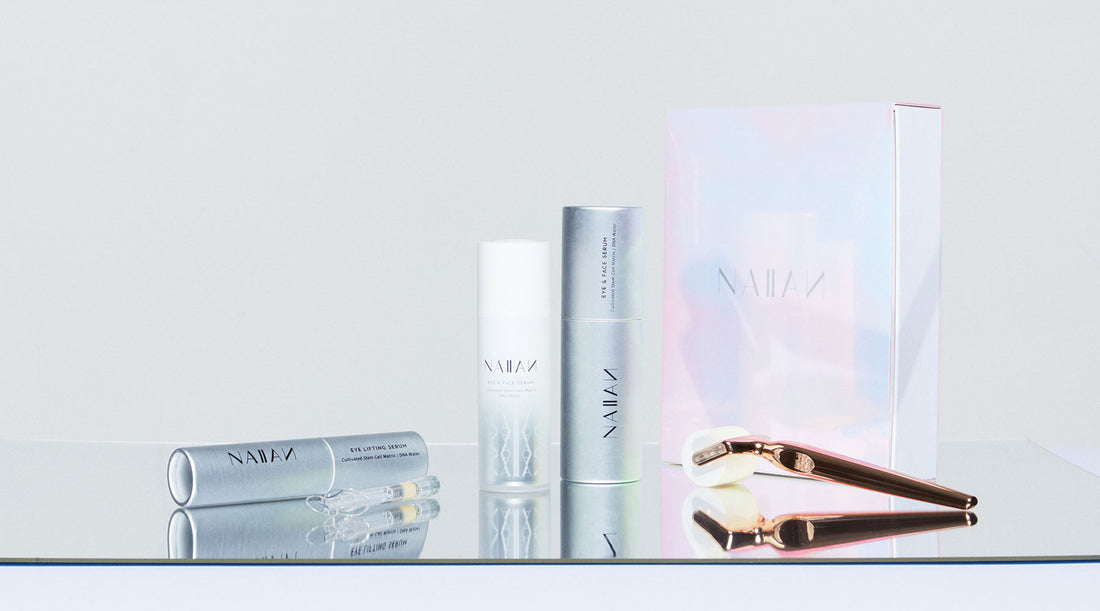By Amanda Chai at straitstimes.com
Naiian: Injecting medical skincare tech into products
Tired of not seeing results from your usual topical beauty products? Mr Jeremy Cheung was too – which is why he created Naiian (naiianbeauty.sg), a skin technology brand aiming to bridge the gap between products and medical procedures.
The consumer arm under his skincare tech start-up Jubilee Skincare Inc launched here in April, with Singapore as its first market outside the US.
For now, there are just three products – an eye and face serum ($299), an eye lifting serum (not available in Singapore) and a roll-to-dissolve microneedling device ($209) – which tap stem cell technology and a proprietary skincare delivery system Naiian calls DNA Water.
The new frontier of skincare will focus on medical beauty technologies incorporated into products, says Mr Cheung, 54.
Take it from him. With 26 years in the beauty industry, the Harvard Business School alumnus has a proven track record of trend forecasting.
He was the first to distribute South Korean brand The Face Shop in China (before it was acquired by conglomerate LG Household & Health Care) and the first to bring Korea-made BB creams to China in 2010, ahead of the product category’s global rise in popularity.
Now based in South Korea, regarded as the skincare innovation hub of the world, he also has first dibs on new technologies and concepts that are substantially trialled before being launched to the public.
Commercialising science
The industry has evolved rapidly, he notes. Beauty spas in the past were a place for massages and facials, but today are where one can get a quick filler or Botox fix. “But even then, not that many people can afford the time and price for a medical beauty service.”
Enter Naiian and Mr Cheung’s ambition to “commercialise science”.
South Korea is rife with independent scientists creating new technologies in skincare delivery systems and application, he says.
“But in the beauty business, marketing money is so important – so a lot of these new tech cannot survive.
“The scientists are very good at what they do, but don’t have the budget or marketing savvy to maintain it. There’s plenty of proven tech waiting to be commercialised.”
Jubilee Skincare hopes to discover these new technologies, connect them and develop them into user-friendly products to be distributed to the world market.
He is currently harnessing two main technologies – microneedling systems and stem cell technology.
The first employs a single-use microneedle (for hygiene purposes) made of hyaluronic acid that dissolves in the skin, preparing the skin for skincare absorption. This is paired with DNA Water, Naiian’s processed water using a magnetic field said to enhance the absorption ability of any ingredient into the skin.
The stem cell technology banks on the nutrient solution used to culture human stem cells – known as stem cell-conditioned media, or food for the stem cells to multiply. During cultivation, growth factors that retain the renewing powers of the original cells are generated. The leftover cultured solution containing these growth factors is then turned into products.
Seven years ago, he faced hair loss issues. He tried platelet-rich plasma technology, using plasma from his own blood to generate growth factors to reinject back into his hair and face. Seeing results boosted his confidence in the science.
Naiian now works with a life science partner in South Korea to scale stem cell technology – from collection and extraction to bottling into products.
The company is already on the lookout for more partners with promising tech – including one from New Zealand, which developed a delivery system used for air cleaning that can be adapted for beauty. Naiian’s product range also has room to grow, with a cleanser in the works, adds Mr Cheung.
Read the original article by Amanda Chai on straitstimes.com here


